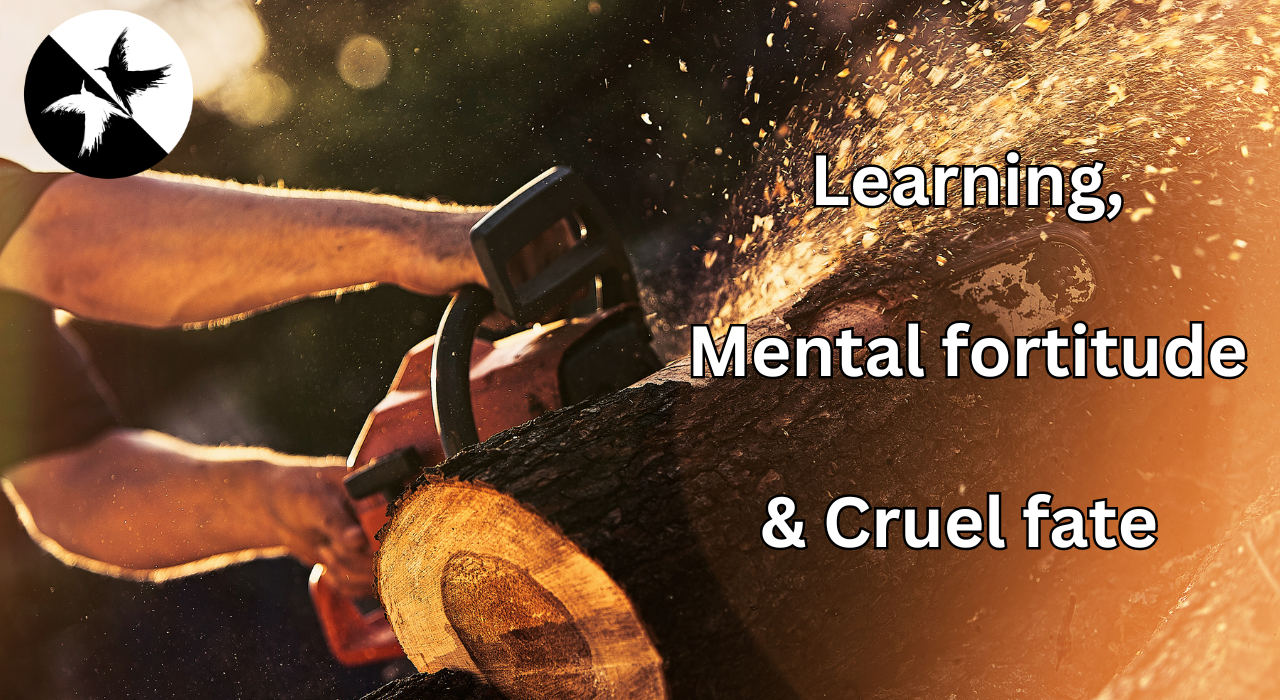What will help your character to hold to their mental fortitude when others laugh about their lifestyle? What about cloth toilet paper? Does my character really need to deal with failure? Who’s getting shocked? Find out on this episode!
Welcome to Writing Rural with Alley, the fiction writer’s weekly inspiration station for rural life and lifestyles, from historical to post-apocalyptic, helping you bring your rural stories to life! I’m Alley, and this is episode #66, Self-Sufficient Mindset (Part 2). Stick around to the end to find out all the ways things could possibly go wrong. Now, let’s get into this.
Welcome to part two! If you haven’t heard part one, you will find it very helpful as well. Check it out, but after you finish listening to this one. Again, I’m going to talk about this in a more modern sense, but this can easily apply in history. Adjust however your story needs.
Last week we left off with your character making things them-darn-self! Ok, that wasn’t the literal wording, but it’s a figure of speech where I am from. This week, we will start off with the mindset of not being wasteful.
You have likely heard of zero waste, and while it is a good goal, it’s almost impossible today. You have also likely heard the boy scout code to leave nothing behind. As in, to leave no trace they were ever there. With kids, this normally means picking up their trash and making sure the campfire is out. However, in war times, soldiers use this so the enemy doesn’t know they are there.
However, we are talking about being self sufficient. This means, when something breaks, your character will fix it, not buy a new one. If it can’t be fixed, then they will see if it can be repurposed. Dresser drawers have been used as cradles for as long as anyone I have ever known can remember. I know people who’s tv’s go out, and while they can’t fix the tv, they can pull out all the screws to be saved in case they are needed for something else. I have seen the plastic melted down, and made into new things. The one that sticks out to me was a hand trowel. I have also seen the plastic on the back used by kids as sleds. The point is to repurpose anything they can. Only when there is no possible use for it left, will they get rid of it.
Growing up, my friend’s mom used to wash and reuse zip-lock bags, sometimes called sandwich bags. When I got my own place, I bought what was called reusable bags. Let’s say I should have stuck to washing the disposable ones.
Paper towels can be replaced with what we always called hand towels. They are basically the same size. In fact, I don’t remember having paper towels in my home until I was a teen, and thought my grandparents were just getting old people stuff. I was so young.
Another one that made a comeback in the lockdowns is cloth toilet paper. Yes, you’re likely picturing that right. Instead of the toilet paper, they replaced it with washable cloth. I mean, it beats a corn cob in the outhouse, but I’m not loving this idea! Other things that were made with cloth were tissues and napkins. To be fair, a lot of people still use cloth napkins when there is not company. My dad uses bandanas for this, and calls it a hankie, but he is not the only one. Men have kept them in their back pant pockets and still do. Women used to keep them in their purse, but this has mostly fallen out of practice.
In part one I said blankets could be repurposed, and indeed they can. They can be made into strips of clothing for bandages, remade into jackets, cut into strips and wove into a rug or bath mat, and if the blanket is too far gone, it can be used as a rag to clean up spills. A little creativity goes a long way.
The next mindset your character needs is that they will buy quality new things, or second hand. Self-sufficient people don’t waste their money on things that will break or wear out quickly, and in the rare times they do, they will not buy new things just to break them. Well, unless they are making a point, like breaking plates.
Last week I talked about the difference in buying cheap shoes that lasted me roughly a month, and the more expensive shoes that lasted me ten years. I wore them every day for ten years. Let that sink in. Your character will want that kind of quality.
In history, it was something that was almost expected. In modern times, we have to hunt them out. Get a review on products. Maybe even try a few. Quality is highly valued and sot after, and many times it is better respected too. No, that was not a joke about anyone’s ex.
Some things stand the test of time in their quality, and your character might hunt for them second hand. The two biggest I can think of are cast iron, and hand forged steel, especially if it came from the 1800s or earlier. Ok, your character might be before that, but I’m specifically referencing modern times for this one. Cast iron bought at the store today is still fairly good. But I can buy $50 for a small skillet there, or find it second hand for $10. Last year, I bought second hand pie pans that were cast iron. I didn’t even know they made them! The elderly lady had them since they bought their first home, and the pie pans looked brand new!
Next on the list is to find like-minded people. There are studies that show who you spend time with effects your world view, inner monologue, and so much more. In fact, this is something mentioned in the Bible. If they knew this all the way back then, and it still holds true, it will, or at least should, hold true in your story. Have you ever wondered why business people hang out together, gym people spend a lot of time together, and miserable people seem to come in groups? Now you know why.
As mentioned in part one, community sufficiency is a huge bonus. The Amish, and my grandmother say, many hands make the work light. They are right. But if one person is dragging everyone along, they will become tired and are very likely to give up, or just ditch the others to do it themselves. Sure, there are outliers, but they are the ones that do it in spite of and usually will leave the others behind.
The next mindset is that of a perpetual learner. They are always learning new things, expanding their knowledge, and are on the look out for new ideas, or topics to study and perhaps master.
They also know, and except that failure is part of the learning process. I mean, imagine if people gave up after the first time they fell trying to walk. We would have a bunch of crawling adults. Tomas Edison was once quoted saying, “I have not failed. I have simply found 10,000 ways that won’t work. When I have eliminated the ways it will not work, I will find the way that will.” 10,000 times. Talk about dedication!
Next is a mindset that has to be mastered, and sometimes remastered. Your character can not care what others think about their self-sufficient decision and lifestyle. This is very important, or when others put down what they are doing, or it looks silly, they will stop or give up. These things can, and do, happen all the time. They have to have the inner fortitude to know what is right for them, is self sufficiency, and they will be doing what they need to, come hell or high water. Ok, that might be a southern saying.
There is another pitfall to this, and that is that those same people who laugh, made fun of, and sometimes tried to stop them, will start to see what they are doing, and want them to do that for them. People can be very selfish, and self centered, but this can also come in the form of not understanding how things work, or are done.
My best example was when I was 19, we had everything to live without electricity, but chose to keep the lights and refrigerator going. We had an ice storm that winter, and I know several people that went 29 days without electricity. That meant no heat, no water, no anything they were used to. My family and friends called me and wanted me to get for them what they needed to live without electricity. Um… sorry, I can’t install a fireplace. I am not that talented. Some were and still are very angry with me about it.
It kind of reminds me of the story of The Little Red Hen. She asked for help to get the garden ready, and no one helped. She asked for help to plant the garden, and no one helped. She asked for help to tend and care for it while it grew, and none helped. She asked for help to sow it, and later to grind the wheat for flour, and then to bake. Yet not a single person helped. Oh, but when the bread was done, everyone was ready to eat the wheat she had worked so hard for. Like in the book, your character very well may tell them, “no. You didn’t help, you don’t get any!”
Last on the list is that everyone needs to know how to do everything. This is a mindset that people who are serious about being self sufficient need. They ditch the stereotype. If you are writing history, or in the apocalypse, a lot of people do a lot of things considered normal for the other sex. To echo my father, your character should know how to do them, even if they never actually do them. Soldiers mend their own clothing. Women can shingle a roof. No, this isn’t even about male a female things, but more a function thing. Boys become men and move out on their own. Spouses can die. People can get into accidents that leaves them paralyzed. There should always be a fall-back plan to these things, and a lot of times it is simply knowing how to do things. Keep that in mind for some of those tragic stories, or backstories.
Bonus info! Characters can struggle with overwhelm, and there are some ways to fight this. Weirdly, they could be applied to our writing too when we feel overwhelmed. This one will really depend on personalities and individuals.
One way to do this is to start simple. Learn one thing that is either simple, or they have a strong desire to learn. Then practice, practice, practice!! As they start to think, “Ok, I might have this,” start learning the next thing. If your character waits until it is perfect or they are a master at it, it will never be done. Start simple and keep learning.
Another way is to write down what it is they want done. Then break that down into smaller actionable steps. Then break those steps into smaller steps. Keep doing that until they have a path that feels doable. Then commit to doing them. Maybe they do three steps per day. Or maybe it is three mini steps, or even one mini step. Forward momentum is the goal. This is not a sprint, it is steady work that doesn’t finish until the job is done. Although if it is more than one story day, they will want to take breaks to eat and sleep. Let’s not go too crazy. Most of us are not writing robots, and even they need to recharge, refuel, or at least change their oil from time to time.
Fun fact: The story The Little Red Hen is believed to be a fable from Russia. Thought to have first been published in the USA in magazines in the 1870s.
What could possibly go wrong?
Before we get to the best part, if you enjoy this podcast, I hope you’ll take a minute to follow, rate, and review on your favorite podcasting platform. And if you are listening on YouTube, subscribe, hit the like button, and drop me a comment; I love to hear from you and answer question! Don’t forget to share with a friend. As always, you can find episode show notes and helpful links to learn more on my website, alleyhart.com. Now for everyone’s favorite part!
Likely to go wrong: Your character works hard to become self sufficient. When other see their success, they want your character to do it for them without them having to put any work into it. This causes your character to resent the others.
Likely to go wrong: Your character repurposes a used blanket, and their family and friends make fun of them and call them weird.
Likely to go wrong: Noone told your character that failing is part of learning. When they fail, they get depressed and just give up.
Possible to go wrong: Your character spent more money on what they believed was a high-quality product, only to find it was no better than the cheaper one.
Possible to go wrong: Your character feels so overwhelmed with where to start that they never become self sufficient.
Possible to go wrong: Your character loses friends because they chose to be self sufficient and take care of themselves, instead of going into debt as their friends suggest.
Unlikely to go wrong: Your character is trying to learn and do new things, but every time they do, their family and friends sabotage them, not wanting them to do better than they are.
Unlikely to go wrong: Your character refuses to learn to sew because sewing is for girls. They are drafted, and in a battle they rip their coat. With no idea how to fix it, when the temperature drops, they become very cold. This could be deadly.
Unlikely to go wrong: Your house wife character doesn’t learn how to budget or pay the bills, and relies on her husband. When he passes, she has no idea how to handle money to care for herself or her children.
Improbable but still technically in the realm of possibilities: Your character is trying to repurpose a radio. However, they forgot to unplug it from the wall, and when they try to remove the inside parts, they get shocked.
Improbable but still technically in the realm of possibilities: Your character knows that the apocalypse is coming. They beg and plead for others to listen and help prepare to survive and thrive as they rebuild society afterward. Only a handful listen and help. At last, your character realizes the people who refuse to listen will only be a drain on them after the apocalypse is over. On the day of the disaster, they shut out all who did not heed and help, dooming them to their inevitable fate.
Thanks for listening! Until next time, happy wordsmithing.



